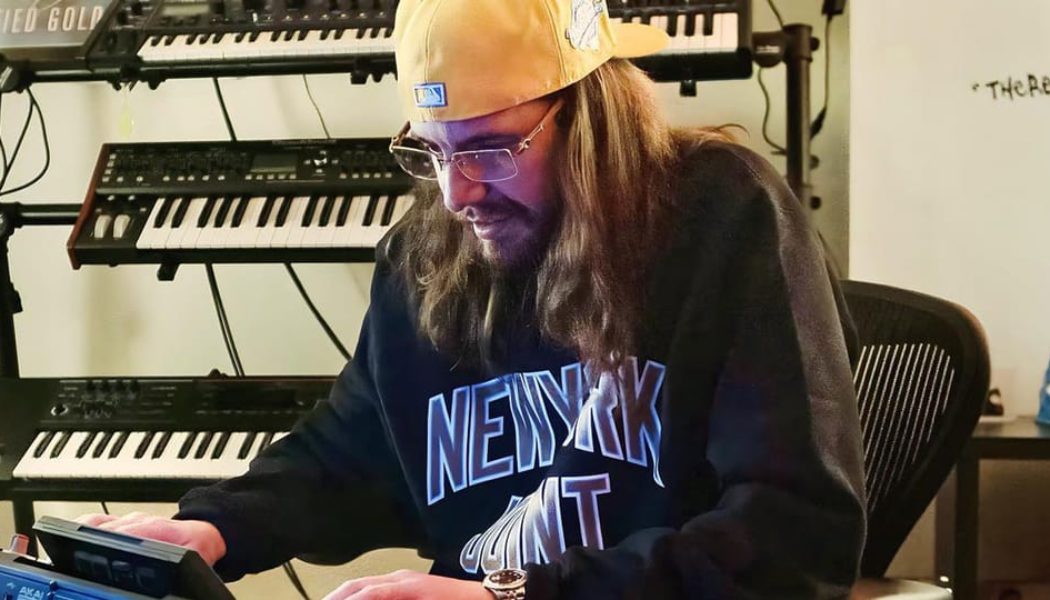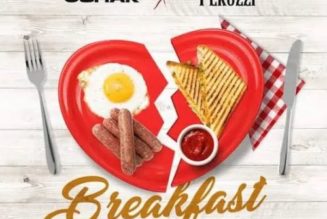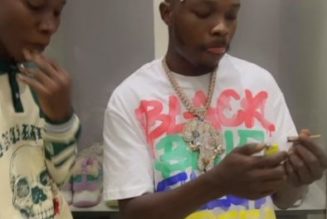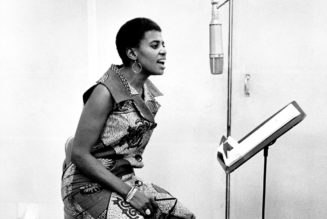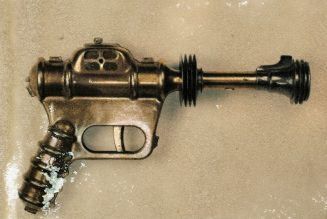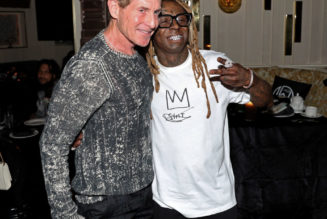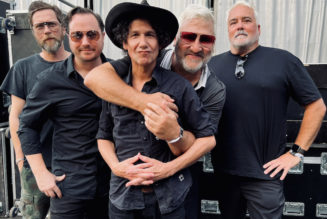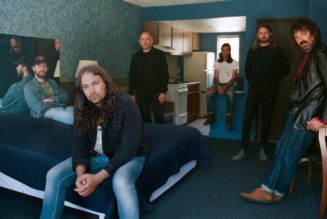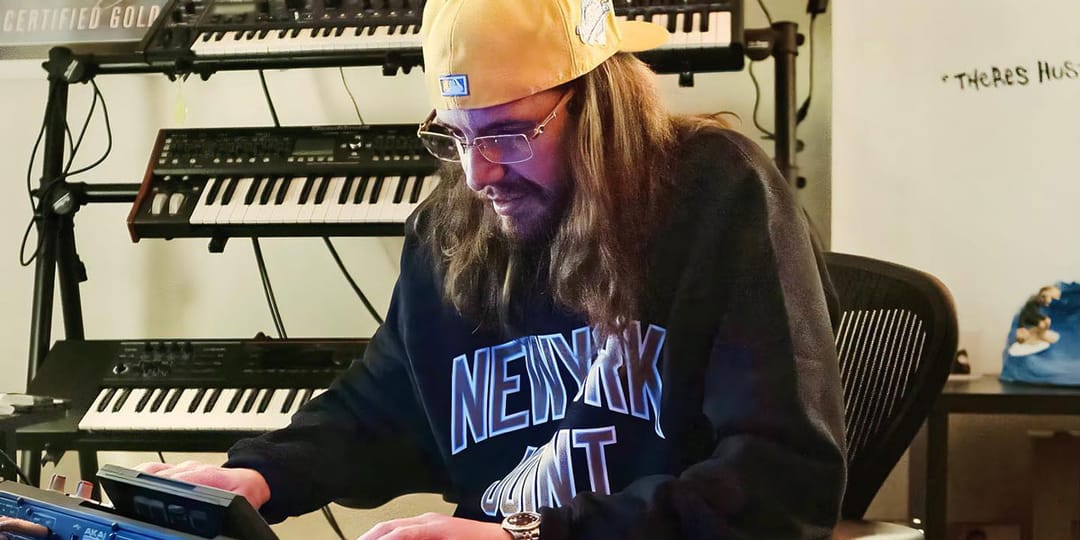
You are reading your free article for this month. Login or sign up for a free account now for unlimited reading.
Hypebeast is conducting a series of conversations with producers to learn more about the oftentimes overlooked musicians behind the mixers.
What do “Location” by Playboi Carti, Curren$y and Wiz Khalifa’s “The Count” and French Montana’s “Shot Caller” all have in common?
They all begin with the infamous, instantly recognizable “La Musica de Harry Fraud” introduction.
“That was honestly a gift from Mother Earth,” laughs Fraud, recalling the makings of his memorable and meme-able tag.
One of Fraud’s friends was in the studio sound engineering for Dominican artist Phoenicia, prompting Fraud to request that Phoenicia “talk some sh*t about me” on the mic to potentially use as a skit on his own album. “Right when I heard her say that phrase I knew that it was more than just a skit.”
Having grown up in Brooklyn in a highly musical family – his mother a singer and his father a guitar player – Fraud has an ear for when things are going to hit. Piano was the first musical foray for Fraud in elementary school, igniting his innate interest in making music, which only increased as he grew older and dove into “the melting pot,” in his own words, of New York City culture.
While Fraud’s friends were asking for Nintendos for Christmas, he was in search of turntables – first drawn to DJing, though quickly learning he wasn’t fiending to play in front of crowds. The technical side of turntablism was his main focus, but his palate was expanded at future Christmases, which consisted of drum samplers, four-track recorders, and eventually an MPC2000, which Fraud says is what changed the game for him. “Once I had access to this boundaryless machine, that opened a whole new door.”
Fraud’s first big break was getting connected with French Montana after a mutual friend played him one of Fraud’s beats. Fraud and French – both early in their careers at the time – would sell their work by hand, posting up on 14th Street with physical copies of their mixtapes.
In another pivotal moment, The Cool Kids’ Chuck English put Fraud onto the influential hip-hop blog NahRight. “I would send my beats to this blackhole of an email and it ended up changing my life,” Fraud says. As his gritty beats quickly gained traction on the blog, he soon caught the eye of Curren$y and eventually got in the studio with now-frequent collaborators including Action Bronson, Larry June, Benny the Butcher, and Dave East – and the rest is history for the one-time “blog darling.”
What were those early, blog-era days working with French Montana like?
I’ll never forget when I first discovered what a blog was. French and I were handselling mixtapes throughout New York City at the time. One of my friends in Chicago was roommates with Chuck English from The Cool Kids. One day, Chuck pulled up on me in the studio when he was visiting NYC and he showed me NahRight. He was like “This is a blog. This is where people post music.”
I had to convince French at first, but I sent our most recent song at the time, “New York Minute” with Jadakiss over to NahRight. Instantly, it started to reach so many more people than we’d ever reached before, and from there it snowballed. I would send music to this guy Mr. X who’d upload the music to NahRight. It’s crazy. I was sending emails into this black hole and it ended up changing my life. From then on, we became these blog darlings, and our music started catching on.
“We were young and the sound quality was shit, but the feeling of the music was there.”
Why do you think it caught on?
Authenticity. We were young and the sound quality was shit, but the feeling of the music was there.
Where do you start with a beat?
It always starts with the source material. Whether it’s a sample, a guitar lick, or a piano run, it has to inspire me. My beats are based on emotion. There’s a million guys making great beats, but very few of them will make you feel something.
Does your approach differ by the artist, or is it a variation on the same formula?
It’s very different based on the artist. The most important part about being a producer is being a weapon in the artist’s Swiss Army knife. In French’s, I might be the blade. In Larry’s, I might be the scissors. You have to be able to conform to the flow of whomever you’re working with and understand the artist’s process. I remember one time I was in the studio with Joey Bada$$ and out of nowhere he was like “I gotta go for a bike ride.”
What’s the collaboration process like with whichever artist you’re working with?
I used to spend upwards of two weeks on the same beat before sending it to an artist, but I’ve gotten to a point – just due to the sheer amount of work I have – where I’ve had to be more efficient with it. I’ve had to move quicker with sound choice and mixing.
I’m always reminding myself that the beat I send to the artist does not have to be the final thing that everyone is going to hear. That first beat you send over is really just about getting your point across. Once that point is clearly conveyed, I then send it to the artists and see what they do with it, and that decides where I go next. That reciprocity between me and the artist is so critical.
What about an artist makes you want to work with them?
Always the voice. That’s why I wanted to work with Dave East, who I chased around for years before our first track actually transpired. I felt like the producers he was working with weren’t producing for him and his voice.
What’s the most important thing when it comes to producing a beat for someone?
Giving the artist something you’re not getting from somewhere else. I could never go work with Sexyy Red because she and Tay Keith have such a beautiful marriage and he’s got her sound on lock.
Do you ever feel underappreciated as a producer?
Being a producer is all about being comfortable playing second fiddle. Social media makes you more conditioned to want to be in the forefront, but as a producer, it’s not about you.
Why do you think you’ve remained such a constant in the production space?
A good anecdote is with the project I’m working on with Swizz Beatz. The first beat pack I sent him was the exact opposite of what any of his producers would’ve ever sent him. That served as the grounds for our entire project, which I hope will come out this year. That’s something I’ve always prided myself on the fact that when I come into the studio with you: I’m not going to play you the same shit you heard from the last 10 guys.
I also think it has to do with my ability to identify artists who are on the cusp – like when I first started working with Larry, or Neff and RXK Newphew – and being able to identify how I can fit into their equation.
